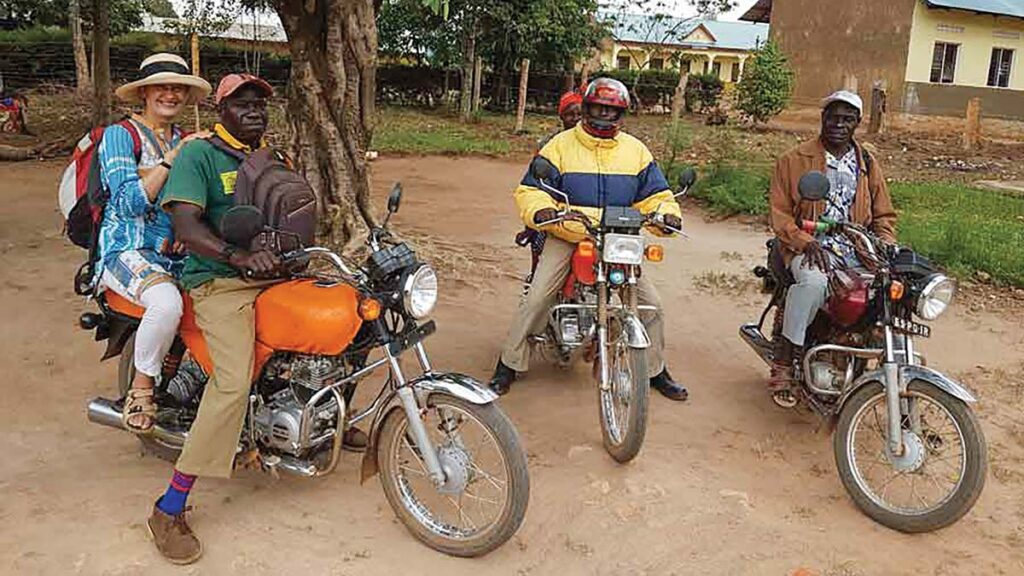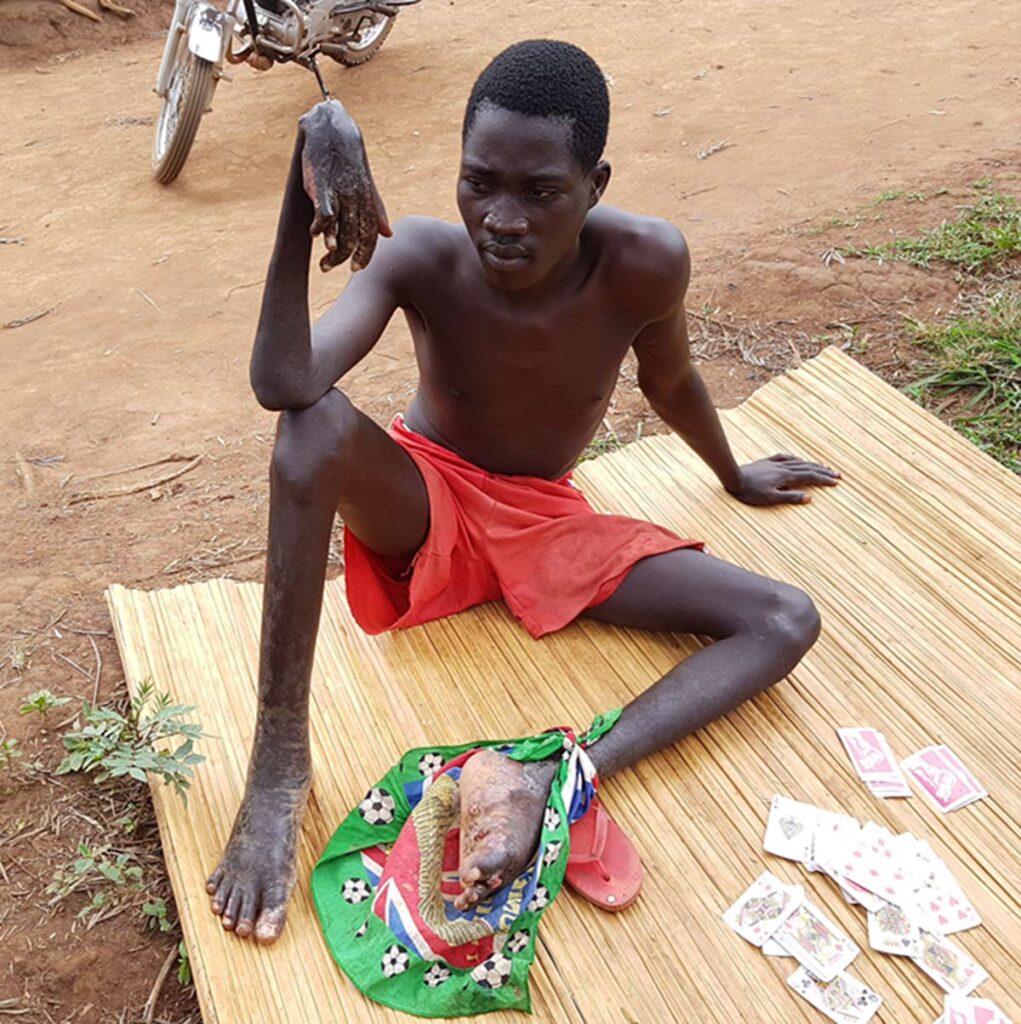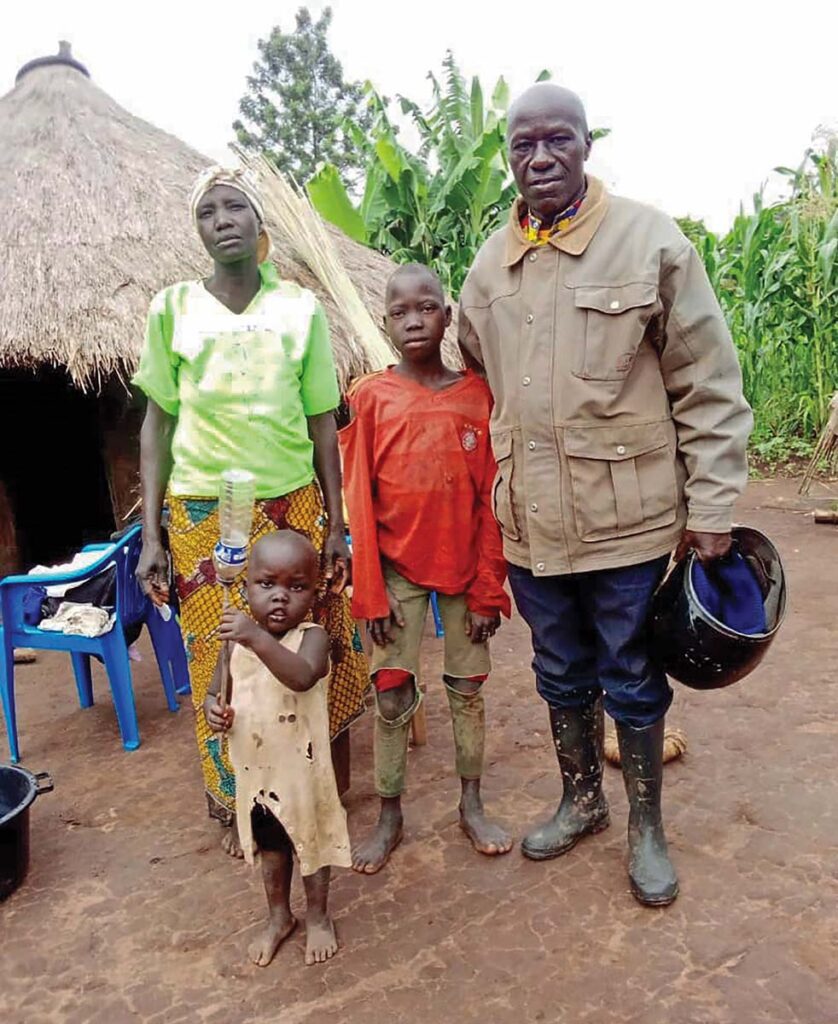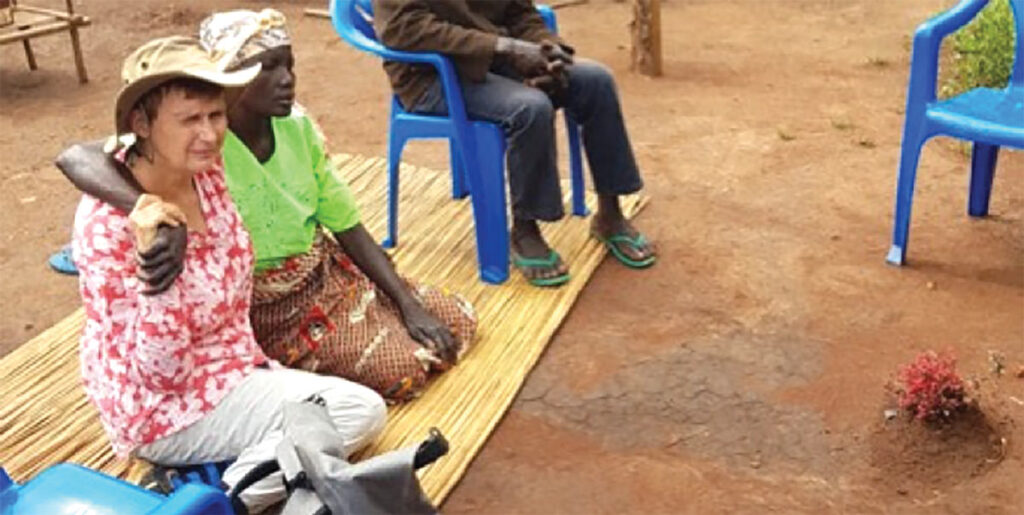Making a difference to those on the edge of life
The palliative care team in north-east DRC are determined no one should be cast aside
Photo: Piriyo was the most educated person in his village and lived a life of sharing faith despite a devastating illness
Piriyo, a young man in north-east DR Congo, struggled to move around or do much more than sit on a mat outside his hut. Told he had “cancer of the feet” he was referred to a palliative care team whose vision is that no one should be forgotten.
Piriyo was in his mid 20s in 2020 when a local health centre referred him to the palliative care team that is part of the medical service in the Diocese of Aru.
One member of the team was palliative care doctor Patricia Wyard, who, along with her husband Peter, has just retired as a CMS mission partner after five years in Aru.
“Patients are the golden thread in the tapestry of all we do to learn, to teach and to connect…”
Patricia has been working to improve the local hospital’s general level of healthcare as well as leading the palliative care team, and Peter has spent his time teaching students preparing for ministry.
Making inroads in palliative care
Aru’s palliative care team was made up of Patricia, two nurses, a chaplain and an administrator.
Although certainly needed, palliative care is not a widespread service in DRC, and the Aru team (now continuing their work without Patricia) is likely the only rural palliative care team in the country.

They are committed to their cause. Patricia says, “Patients are the golden thread in the tapestry of all we do to learn, to teach and to connect far and wide for the purpose of improving palliative care provision.”
The team takes as its motto “Personne de côté”, no one cast aside – they do not give up walking alongside patients and caring for them through to the end of their lives.
Clearly, one small team can’t help everyone, but they make a difference in the lives of the patients they can help. One of those patients was Piriyo.
A local man took Patricia and one of her colleagues, nurse Anguyi, to meet Piriyo and see where he lived, an hour and a half away from Aru by motorbike.
Meeting Piriyo
Piriyo lived with his mother and siblings. His illness had made it difficult to move – he could get around by shuffling along on one hand and one foot on two flip flops, but this limited his ability to work as well as to visit friends and make the best of his life. He spent most of his time sitting on a reed mat outside his hut.

Piriyo had taken on the role of head of his family, as his father had left to start another family and someone needed to look after his mother and younger siblings. To support the family, Piriyo bought petrol and sold it on in little bottles.
He was the only person in his village with a secondary school education and also the only one who could understand French, the official language of DR Congo (and Belgian Patricia’s second language).
Despite his illness, Piriyo persevered in teaching Sunday school from his hut.
“Piriyo may have left this earth, but his memory is treasured.”
On closer examination of what the health centre had called “cancer”, Patricia and Anguyi determined that Piriyo most likely had a fungal disease affecting his feet and one of his hands, and there were some symptoms that could indicate leprosy. In any case, Piriyo was in a lot of pain.
Being Jesus to Piriyo
From this point on, the team visited Piriyo regularly. He couldn’t really afford morphine, so the palliative care team paid for simple painkillers to keep his morphine requirements as low as possible.
The team also prayed with Piriyo each time they visited, as they do with all their patients. Sometimes, Patricia would read to him in his hut from a French Bible.

When asked about what he needed most, Piriyo requested a wheelchair so he could visit his friends. Patricia and the team brought an old wheelchair for him to try, though lack of help from his family limited how he could use it so at the next visit, Piriyo was still sitting on a mat outside.
Patricia and the team continued to visit and do what they could for him, letting him know that he was not forgotten and sharing the love of Jesus simply by being present.
Nearing the end
On one of Patricia’s last visits, she prayed through Romans 8 with Piriyo: nothing can separate us from the love of God.
The last time Patricia saw him, he was very ill. His feet were badly infected, he had a hacking cough and he was even thinner than he had been. He could not get comfortable on his reed mat.
The team prescribed and paid for antibiotics, but Piriyo continued to deteriorate.
In August last year, Piriyo died. As is traditional, he was buried near his family’s huts.

After he had died, Patricia and Anguyi visited his mother. Sitting on the reed mat by his grave, arm in arm with Patricia, Piriyo’s mother wept bitterly. Her firstborn son was gone and the situation for her and her remaining children was dire.
A few months later, when Patricia and Anguyi were on their way to visit another patient, they crossed paths with Piriyo’s mother as she was walking to the market. She wanted them to stop so she could give each of them a hug – she was truly grateful for what they had done for her son.
Piriyo may have left this earth, but his memory is treasured. He was an example to all in his lifestyle, his love for his family and his determination to keep teaching Sunday school despite his illness.
Jesus didn’t give up on Piriyo in his final challenging years, and Piriyo didn’t give up on living out and sharing his faith.